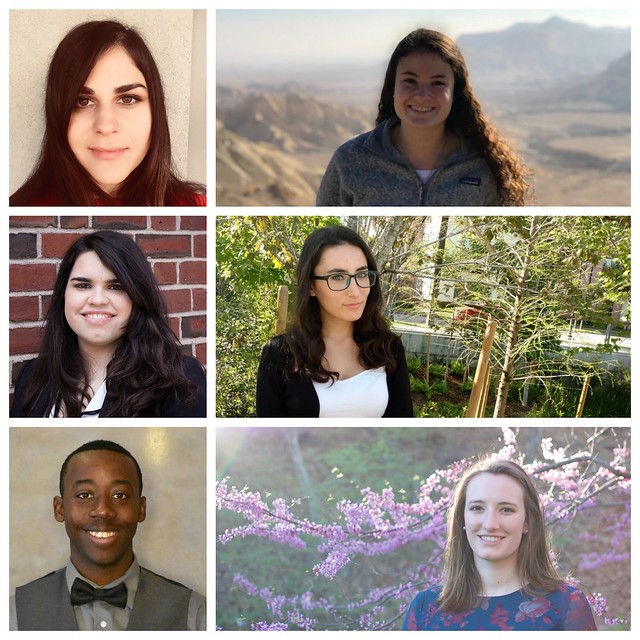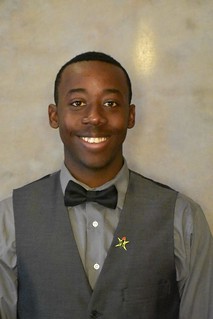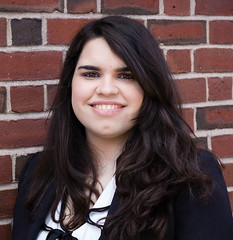
We are pleased to introduce the six students who will participate in the 2018 HCI in Ubicomp IRES program.
 The program is a collaborative effort between Andrew Kun of UNH and Orit Shaer of Wellesley College, and it is funded by the National Science Foundation, Office of International Science and Engineering (OISE). We are grateful for the support.
The program is a collaborative effort between Andrew Kun of UNH and Orit Shaer of Wellesley College, and it is funded by the National Science Foundation, Office of International Science and Engineering (OISE). We are grateful for the support.
As was the case last year, this year we received a number of exceptionally strong applications. After careful deliberation, we selected the six students listed below to participate in the program. Three of them will conduct research at the University of Oldenburg under the supervision of Susanne Boll, and three will work at the Human-Centered Ubiquitous Media lab under the supervision of Albrecht Schmidt. Congratulations to all six! We are looking forward to a productive and fun summer.
 Gabrielle LaBorwit is a rising Junior at Bucknell University majoring in Computer Science and Cognitive Psychology. She is most interested in the intersection of the two and the ethical ramifications that come along with our world’s ever-improving technology. Post-college, Gabrielle aspires to get her PhD in HCI and further delve into the subject of ethical computing and technology. In her free time, she enjoys photography, exploring, and baking.
Gabrielle LaBorwit is a rising Junior at Bucknell University majoring in Computer Science and Cognitive Psychology. She is most interested in the intersection of the two and the ethical ramifications that come along with our world’s ever-improving technology. Post-college, Gabrielle aspires to get her PhD in HCI and further delve into the subject of ethical computing and technology. In her free time, she enjoys photography, exploring, and baking.
 Theophile Nkengfack is a senior Electrical Engineer at the University of New Hampshire with a newly discovered passion for Human Computer Interactions (HCI). He spent his senior year working with Pupil Labs and Ergoneers D-Labs eye tracker technology trying to understand human behavior when determining legitimate/fraudulent email content. He hopes to pursue a masters/PhD degree with HCI as a focus. During his free time, you can find him playing a sport or trying to learn a new language.
Theophile Nkengfack is a senior Electrical Engineer at the University of New Hampshire with a newly discovered passion for Human Computer Interactions (HCI). He spent his senior year working with Pupil Labs and Ergoneers D-Labs eye tracker technology trying to understand human behavior when determining legitimate/fraudulent email content. He hopes to pursue a masters/PhD degree with HCI as a focus. During his free time, you can find him playing a sport or trying to learn a new language.
 Stepheny Perez is a master’s student in Computer Science at New Mexico State University, where she also earned her B.S. in Computer Science. She will be doing her research with Dr. Son Tran on neural networks. She is most interested in artificial intelligence and computer vision, particularly within the domain of self-driving cars.
Stepheny Perez is a master’s student in Computer Science at New Mexico State University, where she also earned her B.S. in Computer Science. She will be doing her research with Dr. Son Tran on neural networks. She is most interested in artificial intelligence and computer vision, particularly within the domain of self-driving cars.
 Denisa Qori is a PhD candidate in Computer Science, currently working in the Advanced Interactions Research Lab at Drexel University. Denisa’s research focuses on developing efficient human-centric systems that accurately adapt their behavior based on an individual’s brain sensor data as an implicit input. Such systems can be used to improve human quality of life, for example, by helping an individual feel less stressed, be more focused on a task, learn more easily, or be more creative. Primarily, Denisa has relied on data obtained using functional near-infrared spectroscopy (fNIRS) brain-computer interface(BCI). fNIRS is a safe, portable, non-invasive brain imaging technique that uses light to infer hemodynamic changes in the brain. To deepen the quantitative analysis of fNIRS time series data, Denisa has been exploring several deep learning techniques. Deep learning has been successfully applied to many computer science applications, but in a limited way to fNIRS or other physiological signal data.
Denisa Qori is a PhD candidate in Computer Science, currently working in the Advanced Interactions Research Lab at Drexel University. Denisa’s research focuses on developing efficient human-centric systems that accurately adapt their behavior based on an individual’s brain sensor data as an implicit input. Such systems can be used to improve human quality of life, for example, by helping an individual feel less stressed, be more focused on a task, learn more easily, or be more creative. Primarily, Denisa has relied on data obtained using functional near-infrared spectroscopy (fNIRS) brain-computer interface(BCI). fNIRS is a safe, portable, non-invasive brain imaging technique that uses light to infer hemodynamic changes in the brain. To deepen the quantitative analysis of fNIRS time series data, Denisa has been exploring several deep learning techniques. Deep learning has been successfully applied to many computer science applications, but in a limited way to fNIRS or other physiological signal data.
 Diana Tosca is a senior from Miami, FL studying Computer Science and Music at Wellesley College. Diana is interested in the intersection between technology and music.
Diana Tosca is a senior from Miami, FL studying Computer Science and Music at Wellesley College. Diana is interested in the intersection between technology and music.
She plays the violin and does nail art in her free time.
 Bella Virgilio is a junior at Wellesley College majoring in Media Arts and Sciences. She is interested in interface design, human-computer interaction, and mixed reality. She is excited about the practical applications of emerging technology and is looking forward to learning about how user interfaces can be optimized for accessibility.
Bella Virgilio is a junior at Wellesley College majoring in Media Arts and Sciences. She is interested in interface design, human-computer interaction, and mixed reality. She is excited about the practical applications of emerging technology and is looking forward to learning about how user interfaces can be optimized for accessibility.